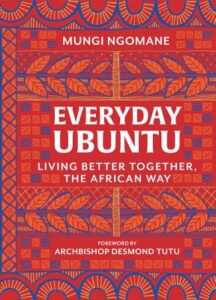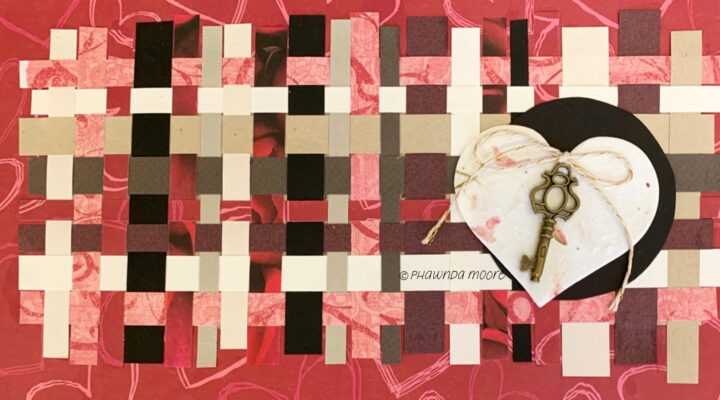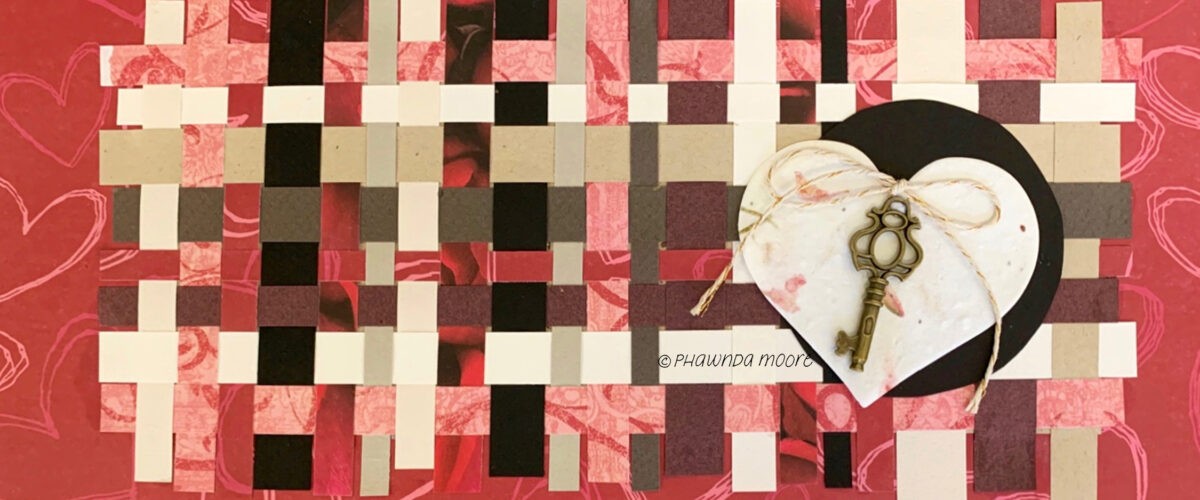Love is in the air this month, a sweet occasion enjoyed around the world. Valentine’s Day began in Medieval times and now is a romantic event to exchange endearing words, flowers and cards with those who mean the most to us. But why just one day? What if we honored the good in people every day and aspired to be more loving to them?
That philosophy is embraced in South Africa, where ubuntu sees humanity with divine love and celebrates that we’re all created in the Creator’s image.

Phawnda Moore
Ubuntu recognizes that we exist on the planet’s seven continents to be communities that connect and care. “We’re all in this together.”
It’s baffling that in our multicultural mosaic of immigrants, this Christian concept is so controversial. Daily news stories remind us that greed matters, and the lack of humanity in the “United” States is divisive — in your community, church and even family. On other popular channels and social media, one observes an endless love of materialism, a sense of righteous entitlement, stubborn defiance and power strategies.
Archbishop Desmond Tutu says ubuntu is not, “I think therefore I am.” It says rather: “I am a human because I belong. I participate. I share.”’ In essence, I am because you are.
Tutu wrote: “A person with ubuntu is open and available to others, affirming of others, does not feel threatened that others are able and good, based from a proper self-assurance that comes from knowing that he or she belongs in a greater whole and is diminished when others are humiliated or diminished, when others are tortured or oppressed.”
When Tutu died in December 2021 at the age of 90, PBS presented his amazing life and legacy.
Others who’ve modeled ubuntu in their lives include Mahatma Ghandi, Martin Luther King Jr., Nelson Mandela, Bishop Michael Curry, and Barack Obama.
 At Nelson Mandela‘s memorial, United States President Barack Obama spoke about ubuntu, saying, “There is a word in South Africa — ubuntu — a word that captures Mandela’s greatest gift: his recognition that we are all bound together in ways that are invisible to the eye; that there is a oneness to humanity; that we achieve ourselves by sharing ourselves with others, and caring for those around us.”
At Nelson Mandela‘s memorial, United States President Barack Obama spoke about ubuntu, saying, “There is a word in South Africa — ubuntu — a word that captures Mandela’s greatest gift: his recognition that we are all bound together in ways that are invisible to the eye; that there is a oneness to humanity; that we achieve ourselves by sharing ourselves with others, and caring for those around us.”
We were blessed to hear the Soweto Gospel Choir on tour years ago; their joyful voices (in English and eight South African languages) filled the auditorium with soul, harmony, passion and rhythm. Spirited melodies were interwoven with a colorful kaleidoscope of the African culture, from their radiant, dark faces to the jewel-toned, dashiki-inspired costumes.
Many believers struggle to practice ubuntu to their neighbors or newcomers because of shyness or inexperience. Yet others dismiss or hotly deny the importance of this kind, peaceful philosophy; it’s somehow not their calling.
Misdirected energy leads to walls of distance, exclusion and resentment. Worse, it’s then freely expressed in bullying, hate and crime — even senseless, targeted murder.
And we were called to love one another.
To explore ubuntu in your life:
- Read a small, colorful and beautiful book by Desmond Tutu’s granddaughter, Mungi Ngomane: Everyday Ubuntu. I love that she includes humor, healthy boundaries, mindful exercises, forgiveness, painful realities, and hope in her guide.
- Simply smile at someone from a different culture in public gatherings like art galleries, libraries or choirs.
- Engage with others in activities such as cooking ethnic foods, music, crafts. Be available to walk along with them in their sandals, moccasins, boots — or bare feet. Aim to listen so you can better understand; this is the heart of ubuntu.
Key concepts:
- Ubuntu sees others as unique shades in a color wheel, where every person belongs in the circle, as created by the Creator.
- Ubuntu is about worth, not wealth.
- Ubuntu acts in sincerity, welcoming fellow humans with dignity and value. It makes room for humility, compassion and gratitude.
ART PROJECT: The banner “Love is the Key to Peace” is a paper weaving (a Japanese art form) that visually unites colors and cultures from the world continents (Asia, Africa, North America, South America, Antarctica, Europe, Australia). This is a good creative exercise for older children and adults to make while discussing ubuntu concepts. Cut about 20 to 30 strips of similar weight papers (heavy copy or lightweight scrapbook, about 60 lb.) mixing solid colors and patterns about 8 inches to 12 inches long and in varying widths (1/4″ to 5/8″ or so). Lightly tape down half the strips on background paper, alternating widths and colors. Now, carefully weave the remaining strips in the opposite direction in an over/under direction, and tighten the intersections. Glue on a heart, world circle, key charm and string tie, if you like.
Phawnda Moore is a Northern California artist and award-winning author of Lettering from A to Z: 12 Styles & Awesome Projects for a Creative Life. In living a creative life, she shares spiritual insights from traveling, gardening and cooking. Find her on Facebook at Calligraphy & Design by Phawnda and on Instagram at phawnda.moore.
Related articles:
Panelists consider world peace in terms of Jesus’ Sermon on the Mount
An encompassing Christology | Opinion by Molly Marshall
What I fear as a white woman married to a Black man | Opinion by Missy Ward-Angalla


